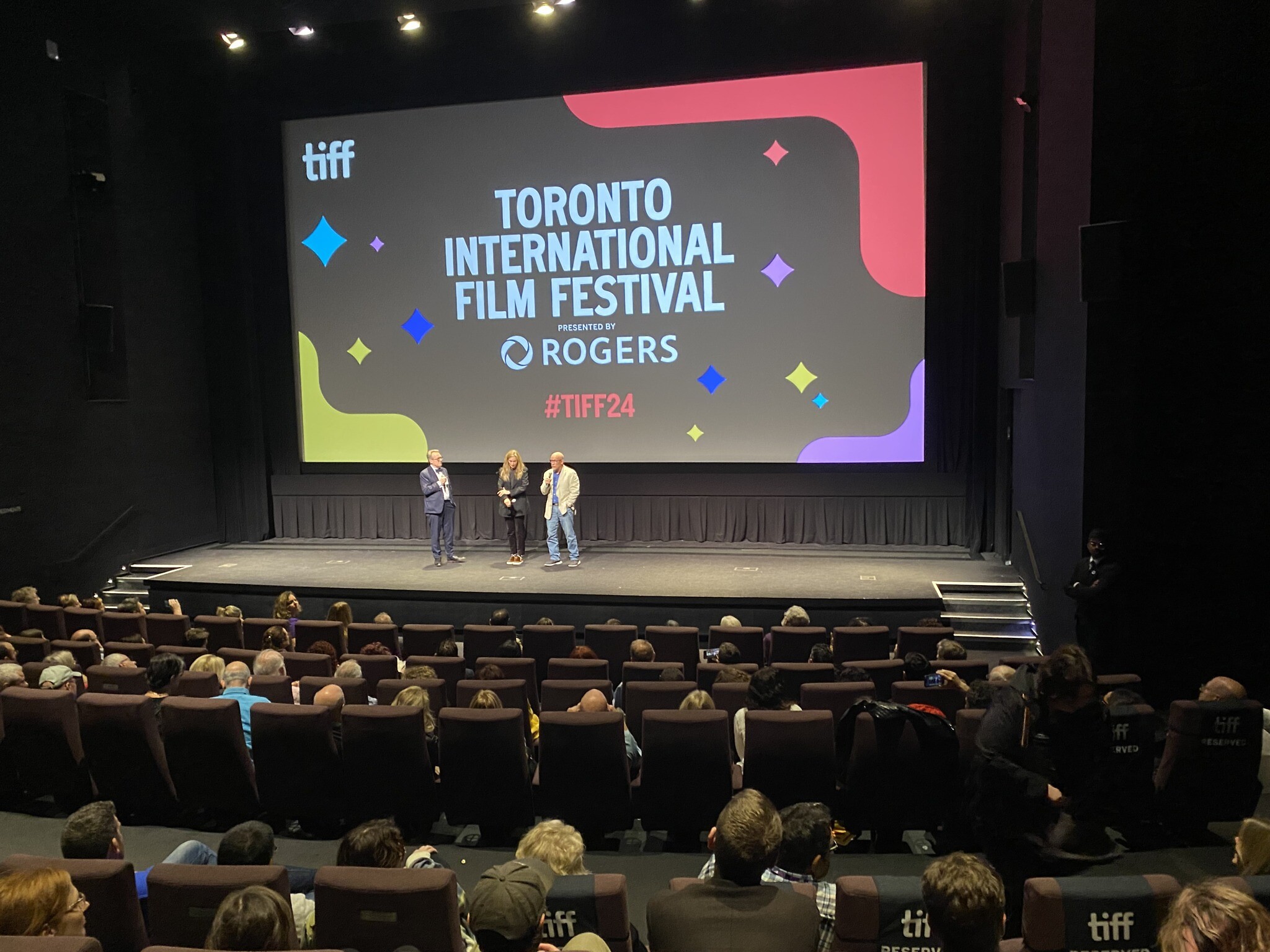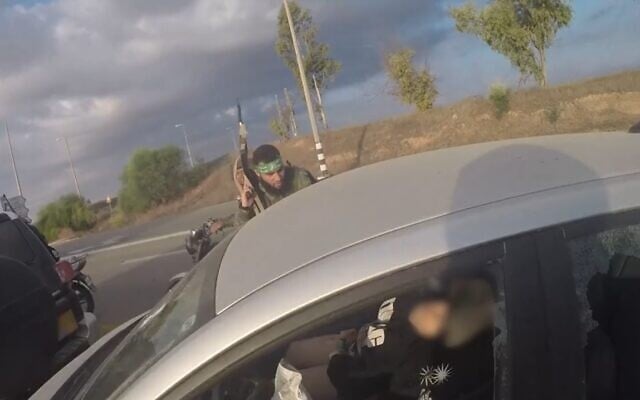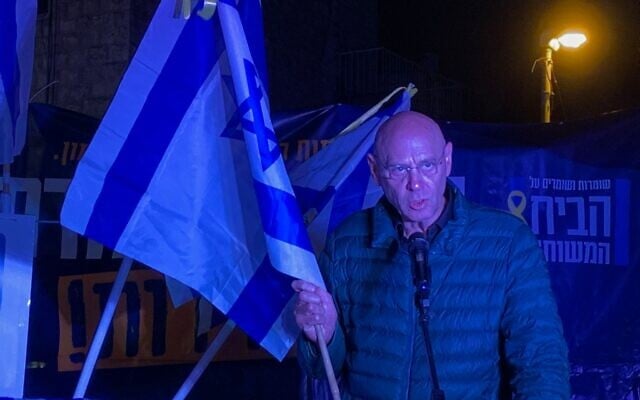



The Toronto International Film Festival (TIFF) announced this week that it had canceled its invitation to screen a documentary about the October 7, 2023, Hamas attacks, due to apparent copyright concerns stemming from the fact that the filmmakers did not receive permission from the Hamas terrorists whose clips are featured in the film.
The festival was set to show “The Road Between Us: The Ultimate Rescue,” which tells the story of Maj. Gen. (res.) Noam Tibon, who set out to save his son, journalist Amir Tibon, and his son’s family as they were attacked by Hamas-led terrorists at their home on Kibbutz Nahal Oz. The film was created by Canadian filmmaker Barry Avrich.
The movie features footage taken from the cameras of terrorists, who filmed their atrocities as they marauded through Israeli communities. Over a quarter of Nahal Oz’s 400 residents were killed or taken hostage that day.
News of the movie’s disinvitation was first published in Deadline, which said TIFF pulled the screening due to fear of anti-Israel protesters disrupting the festival as well as the copyright issue.
According to Hebrew media reports, sources close to the film’s production said the festival’s claimed reason for the cancellation was that the filmmakers had not received explicit permission to use videos of the Hamas operatives during the attack, with the festival fearing a potential lawsuit.
A TIFF spokesman told Deadline, “The invitation for the Canadian documentary film The Road Between Us: The Ultimate Rescue was withdrawn by TIFF because general requirements for inclusion in the festival, and conditions that were requested when the film was initially invited, were not met, including legal clearance of all footage.”

“The purpose of the requested conditions was to protect TIFF from legal implications and to allow TIFF to manage and mitigate anticipated and known risks around the screening of a film about highly sensitive subject matter, including potential threat of significant disruption,” they added.
After the announcement, the filmmakers told Deadline: “We are shocked and saddened that a venerable film festival has defied its mission and censored its own programming by refusing this film.”
“Ultimately, film is an art form that stimulates debate from every perspective that can both entertain us and make us uncomfortable,” they added. “A film festival lays out the feast and the audience decides what they will or won’t see. We are not political filmmakers, nor are we activists; we are storytellers. We remain defiant, we will release the film, and we invite audiences, broadcasters, and streamers to make up their own mind, once they have seen it.”
According to the report, the filmmakers were asked by the festival to make several editorial changes, including to the film’s title, and get legal clearance to use footage filmed and livestreamed by Hamas terrorists as they carried out their onslaught.
The artists were also told they they had to beef up security for the event and provide a letter of indemnification, legally accepting liability for any copyright violations or other legal issues that could arise from the film’s showing.
According to reports in Deadline, TIFF’s lawyers contacted the film’s producers on August 6, asking to see evidence of the legal indemnification and other requirements, and to screen the film on Friday, August 8, to verify that required changes were made.
Then on Monday, August 11, TIFF head Cameron Bailey contacted the filmmakers asking them to withdraw the film from the festival, which they refused, Deadline said. The next day, the documentary was officially uninvited, the report said.

Reacting to the film’s cancelation, the documentary’s subject Noam Tibon said it was “absurd and bizarre.”
“The Toronto Film Festival has succumbed to pressure and threats, and has chosen to silence and erase October 7,” Tibon said. “My message to the festival management: The truth cannot be erased. The atrocities committed by Hamas cannot be erased or denied.”
Tibon continued, “The festival management’s claim that the film cannot be screened because ‘permissions to use’ the footage of the Nukhba terrorists were not obtained is absurd and bizarre, and constitutes further harm to the victims.”
Tibon’s story has been featured on the US news program “60 Minutes,” and Tibon’s son, Amir, has written a book about his story. A film about the rescue is also being developed by “Fauda” creators Avi Issacharoff and Lior Raz.
The Canadian Centre for Jewish and Israeli Affairs also slammed the festival’s decision: “It is inconceivable that TIFF allows a small group of extremists — using intimidation and threats of violence — to dictate which films Canadians can see at the festival. This shameful decision sends an unequivocal message: Toronto’s Jewish community is no longer safe or welcome.”
According to the Israeli news outlet Ynet, the film will be shown in early September in Toronto at a public screening set up by the city’s Jewish community.
